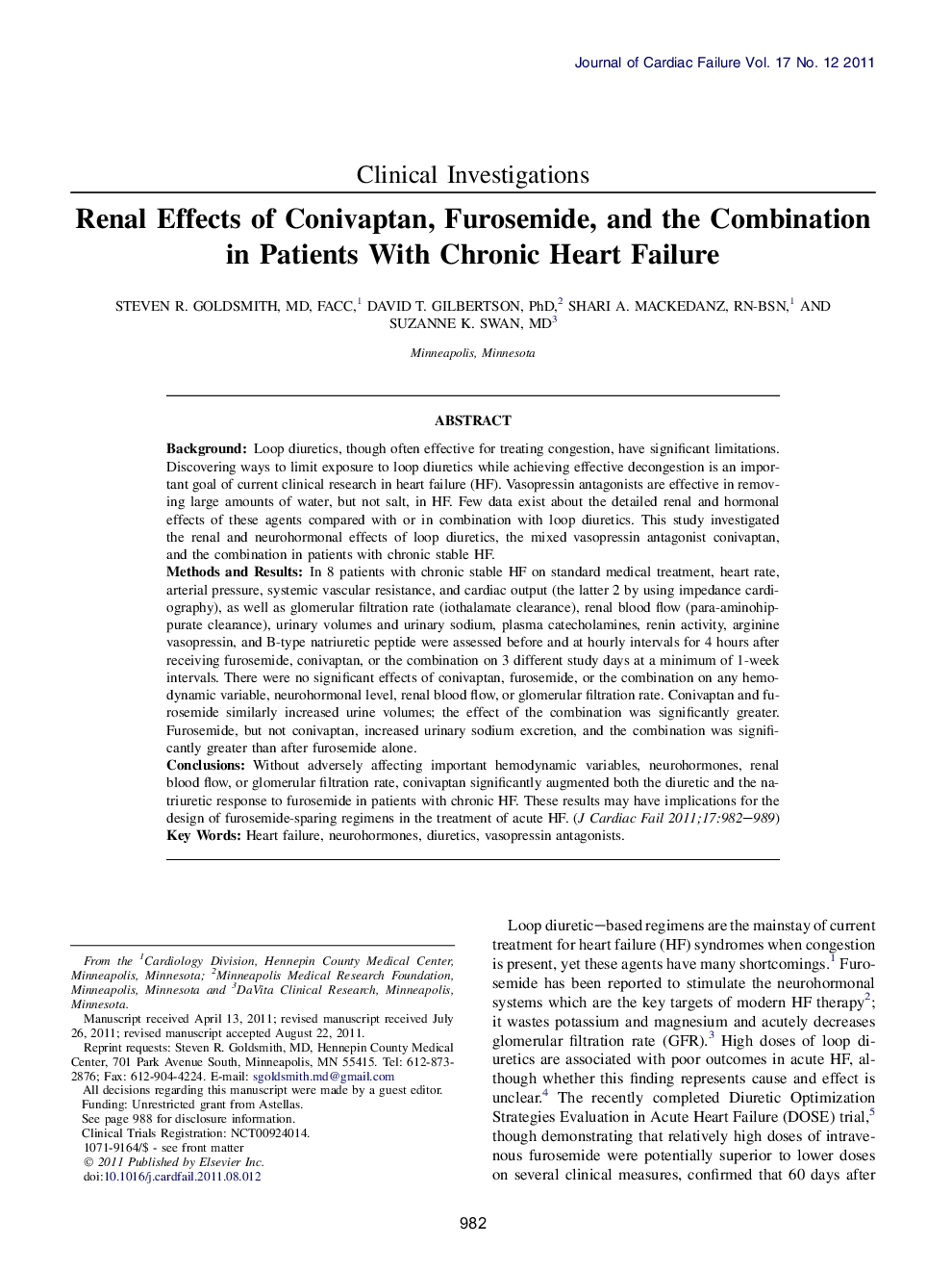| کد مقاله | کد نشریه | سال انتشار | مقاله انگلیسی | نسخه تمام متن |
|---|---|---|---|---|
| 2959976 | 1178340 | 2011 | 8 صفحه PDF | دانلود رایگان |

BackgroundLoop diuretics, though often effective for treating congestion, have significant limitations. Discovering ways to limit exposure to loop diuretics while achieving effective decongestion is an important goal of current clinical research in heart failure (HF). Vasopressin antagonists are effective in removing large amounts of water, but not salt, in HF. Few data exist about the detailed renal and hormonal effects of these agents compared with or in combination with loop diuretics. This study investigated the renal and neurohormonal effects of loop diuretics, the mixed vasopressin antagonist conivaptan, and the combination in patients with chronic stable HF.Methods and ResultsIn 8 patients with chronic stable HF on standard medical treatment, heart rate, arterial pressure, systemic vascular resistance, and cardiac output (the latter 2 by using impedance cardiography), as well as glomerular filtration rate (iothalamate clearance), renal blood flow (para-aminohippurate clearance), urinary volumes and urinary sodium, plasma catecholamines, renin activity, arginine vasopressin, and B-type natriuretic peptide were assessed before and at hourly intervals for 4 hours after receiving furosemide, conivaptan, or the combination on 3 different study days at a minimum of 1-week intervals. There were no significant effects of conivaptan, furosemide, or the combination on any hemodynamic variable, neurohormonal level, renal blood flow, or glomerular filtration rate. Conivaptan and furosemide similarly increased urine volumes; the effect of the combination was significantly greater. Furosemide, but not conivaptan, increased urinary sodium excretion, and the combination was significantly greater than after furosemide alone.ConclusionsWithout adversely affecting important hemodynamic variables, neurohormones, renal blood flow, or glomerular filtration rate, conivaptan significantly augmented both the diuretic and the natriuretic response to furosemide in patients with chronic HF. These results may have implications for the design of furosemide-sparing regimens in the treatment of acute HF.
Journal: Journal of Cardiac Failure - Volume 17, Issue 12, December 2011, Pages 982–989